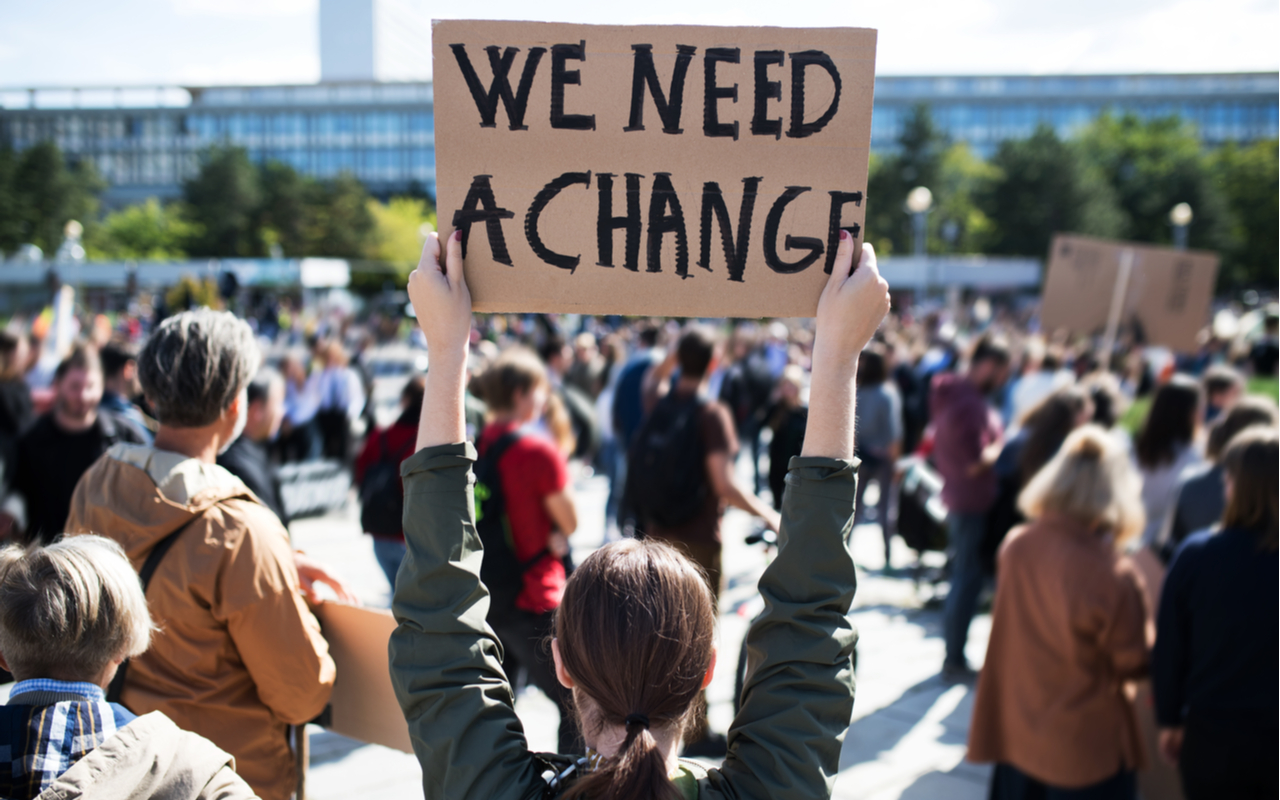The youth climate movement won’t settle for any climate solutions not grounded in addressing systemic inequalities.
This message was made loud and clear at Power Shift 2021, a national youth climate justice convergence aimed at building collective youth power to address climate disaster, racial justice, and economic transformation.
From April 16 to 25, over 1,000 young activists convened virtually to build their skill sets to fight for climate justice. While most young people have the profound stories and determination from their lived experiences to halt the climate crisis, many lack the support system, political education, and technical skills to take action. The Power Shift Network (PSN), and convergences like this, aim to change that.
PSN is a Black-led national coalition of over 100 youth-based climate organizations working to create a just, clean energy future and resilient, thriving communities for all. To do this, they invest in climate solutions rooted in dismantling structural systems of oppression, namely racism, capitalism, colonialism, patriarchy, and ableism.
Naming capitalism as a root cause of the climate crisis was a key theme from the over 70 sessions hosted during the convergence.
Basav Sen, Climate Policy Director at the Institute for Policy Studies, explained in his session “Real Crisis, False Solutions: How Some Industry-Backed Climate Solutions Perpetuate Harm” that “capitalism created the climate crisis because of its lack of constraint on the use of resources and because it views humans and ecosystems as sacrifice zones. We can’t trust capitalists to then solve the crisis.”
Many sessions discussed and debated alternative economic systems, including ecosystemic design, models of anarchy, cooperative models, circular economies, and energy democracy.
This point was furthered in several discussions critiquing the role of non-profits within the climate movement.
“If you’re not organizing yourself out of your job, or for your organization to not need to exist, then you’re not organizing for real,” said Paula Muñoz from the Florida Immigrant Coalition during the session, “Art as a Mirror For Climate Justice Conversations.”
Another key theme was the importance of centering Black, indigenous, people of color (BIPOC) in all climate solutions. One initiative highlighted was the Red Black and Green New Deal (RBG New Deal). An initiative of the Movement for Black Lives, it centers Black liberation in the struggle for global climate justice. This agenda proposes immediate action to repair the uniquely racist practices of the fossil-fuel industry.
Colette Pichon Battle, founder of the Gulf Coast Center for Law and Policy, discussed in the session “Where the Climate Justice Movement meets the Movement for Black Lives” that federal climate “solutions” have notoriously displaced and poisoned Black and indigenous communities. She stated, “if there’s any Black death in policy, then it’s not a solution.”
Jasmine Banks, organizer with PSN and Executive Director of Unkoch My Campus, explained the distinction between the RBG New Deal and the Green New Deal: “it differs from the GND because it is not a set of policy recommendations, it’s an agenda that centers how Black people are disproportionately affected by climate change and environmental racism.”
She also noted its uniquely integral involvement of young people compared to other large policy agendas drafted by “policy wonks.” She furthered, “We know that Black communities have always honored young people and are deeply intergenerational. This endeavor brings people across ages to shape a future that honors life, ecosystems, and our community.”
The convergence not only named the critical importance of centering racial justice in climate policy solutions, but also within the movement itself. Much of the non-profit climate space is notoriously known for being anti-Black.
Destiny Hodges, PSN member and Founder of Generation Green, noted “What I have continued to see in this movement is trauma: Black people experiencing burnout, microaggressions, carrying out tasks that are not listed in their job descriptions, and being forced to defend their existence, their Blackness.” She identified this convergence as “a space to build community and power alongside other BIPOC youth who are fighting for a just future.”
Jasmine Banks also affirmed this sentiment, “ I saw a space cultivated to underscore the realities that when we center folks who are historically left out of conversations, Black and Brown young people particularly, what we are able to produce is an immense amount of catalytic people power.”
The convergence coincided with President Biden’s Leaders Summit on Climate, and young folks were outraged, but unsurprised, by the lack of action. In the session “Building Power After Biden’s Climate Summit: A Global South Perspective,” activists from the Global South voiced their criticisms. Krishneil Narayan, climate activist from Fiji, said, “the approach of the U.S. government is addressing climate from a militaristic point of view and its threat to national security. For us, it isn’t about military action. It’s about food, water, and overall security.”
Iman Bashir, climate activist from Kenya, furthered this critique of Biden’s summit.
“We don’t have time to wait for the United States to organize itself or get their finances together because there are typhoons happening and many climactic events happening in developing countries,” he said. “During the summit, most of the countries didn’t speak about gas, oil, or coal. They just spoke about their hopes and dreams. We need urgent timelines and actions for when and how the US will move away from coal and oil and move to renewable energy.“
In preparation for the summit, the Network released a set of Youth Climate Demands and organized dozens of actions across the country that called for real, systemic action for climate. This included a delivery of the Youth Climate Demands to the White House, as well as a large direct action in New Orleans that centered the unique struggles the Gulf Coast faces when combating climate change.
It’s clear that young climate activists are forging a new wave for what environmentalism means in the mainstream. Fighting climate change means uprooting the systems that caused the crisis, and climate justice means justice for all.
